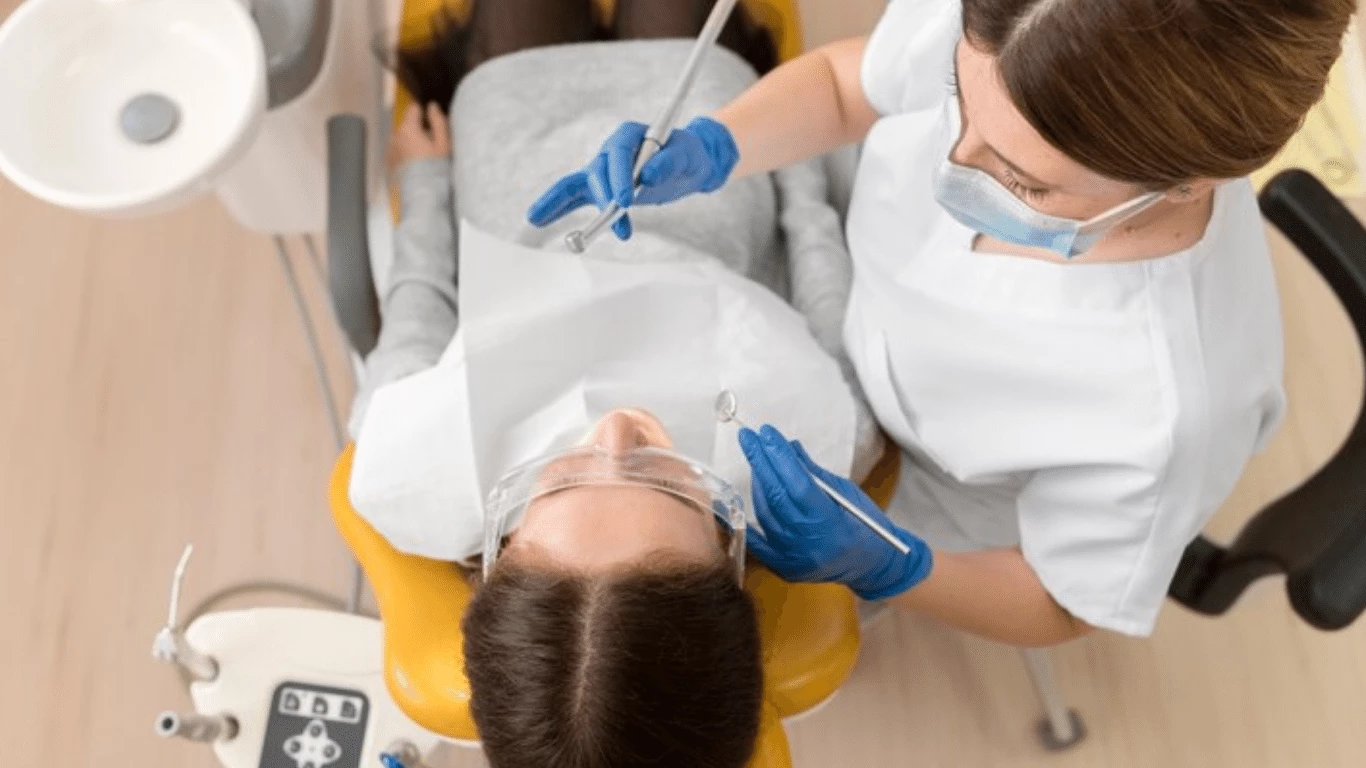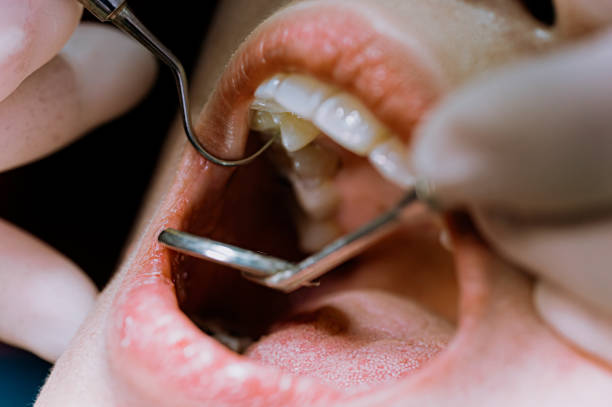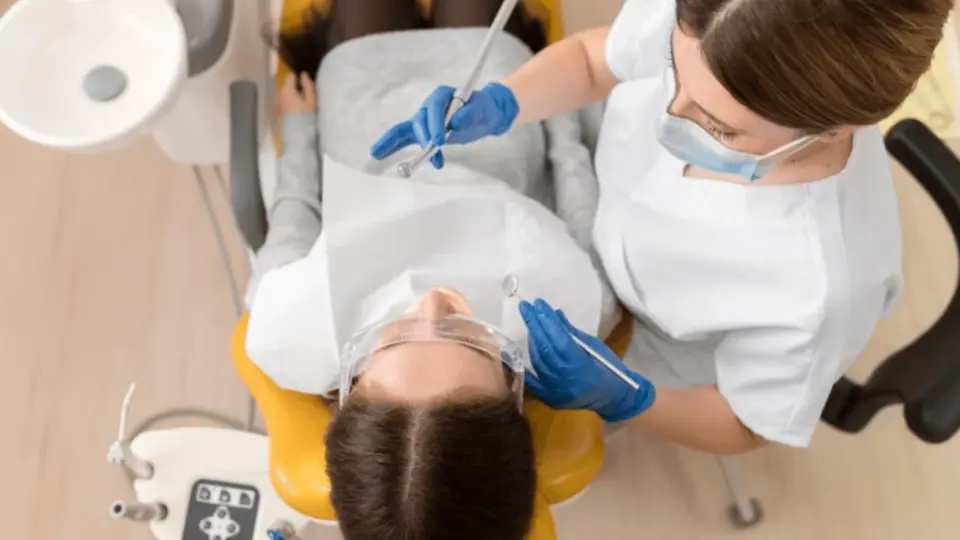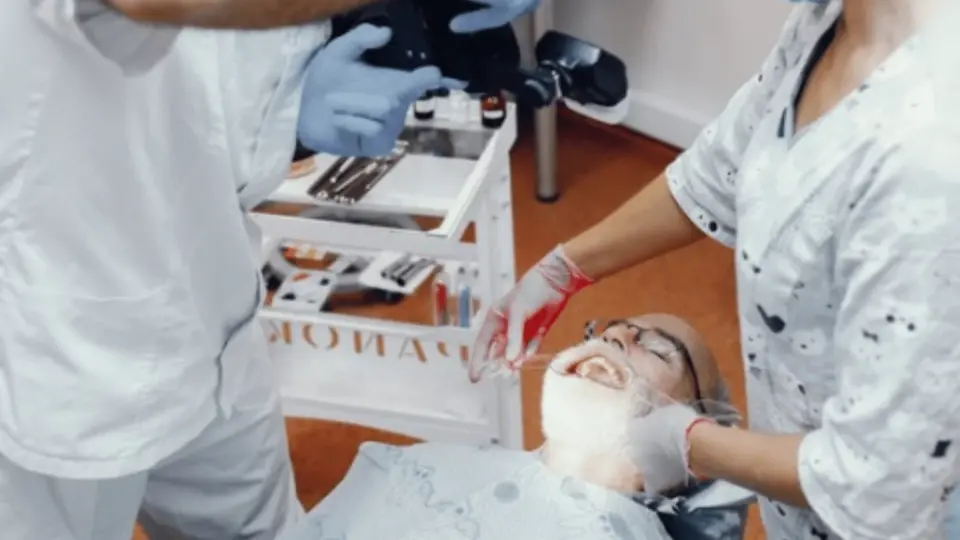How General Dentists Are Becoming the First Line of Defense Against Chronic Illnesses

Your next dental checkup might do more than just keep your teeth clean—it could save your life. More and more, general dentists are spotting early signs of chronic illnesses like heart disease, diabetes, and even sleep apnea during routine exams. The mouth is a powerful window into overall health, and dentists are trained to recognize warning signs that often go unnoticed.
A small issue, like bleeding gums, might be the first clue to a bigger problem. With regular visits, your dentist isn’t just protecting your smile—they’re becoming a key player in preventing serious health issues. This shift in dentistry is changing the way we think about healthcare, making dentists one of the first lines of defense against chronic illnesses.
How do general dentists help detect early signs of chronic illnesses?
General dentists are crucial in detecting early signs of chronic illnesses, often before patients even realize an issue. Here are ways they help spot these conditions:
- Gum Disease and Heart Health: Gum disease (periodontitis) has been linked to several chronic conditions, including heart disease, diabetes, and stroke. Dentists look for signs of gum inflammation, bleeding, or infection during a routine cleaning or examination, which may indicate systemic health issues.
- Mouth Lesions and Cancer: Dentists examine the soft tissues in the mouth for unusual lesions, sores, or growths that could signal oral cancer or other systemic diseases. Early detection of oral cancer can significantly improve the chances of successful treatment.
- Diabetes Indicators: Dentists often notice signs of diabetes, such as dry mouth, gum infections, or slow-healing sores. Gum disease is more common in diabetic patients, so dentists are trained to recognize these red flags and refer patients for blood sugar testing.
- Bite Issues and Neurological Disorders: Bite or jaw alignment changes can indicate neurological conditions such as temporomandibular joint (TMJ) disorders or other neurological issues. Dentists can identify these early signs and recommend further evaluation.
- Chronic Inflammation: Chronic inflammation in the mouth, such as swollen gums or frequent infections, can indicate systemic inflammation linked to conditions like autoimmune diseases, rheumatoid arthritis, or other chronic health problems.
By thoroughly examining the mouth and oral tissues, general dentists can detect early signs of chronic illnesses and provide timely referrals for further medical investigation, ultimately helping patients address health concerns before they progress.
What common chronic diseases can a dentist identify during a routine checkup?
Dentists can often identify early signs of several common chronic diseases during a routine checkup, thanks to their thorough examination of the mouth and oral tissues. Here are some chronic diseases that a dentist can help identify:
- Diabetes: Dentists may notice signs of uncontrolled diabetes, such as dry mouth, frequent gum infections, slow-healing sores, or gum disease. These issues are common in individuals with poorly managed blood sugar levels.
- Heart Disease: Gum disease (periodontitis) is strongly linked to heart disease. Dentists can spot gum inflammation, bleeding, or infection, which may signal an increased risk for heart conditions like strokes or heart attacks.
- Cancer: Dentists perform oral cancer screenings during routine exams, looking for unusual sores, lumps, or patches in the mouth. Early detection of oral cancer can significantly improve the chances of successful treatment.
- Osteoporosis: Dentists can observe signs of osteoporosis in the jawbone. If the bone density around the teeth is compromised, it may indicate a higher risk of fractures and a diagnosis of osteoporosis.
- Kidney Disease: Poor oral hygiene, gum disease, and bad breath can sometimes be linked to kidney disease. Dentists may notice these signs and recommend further testing.
- Eating Disorders: Dentists may identify signs of eating disorders, such as tooth erosion, particularly in the enamel, which can be a result of frequent vomiting in individuals with bulimia.
By recognizing these signs during a routine dental exam, dentists can help patients seek early intervention and improve their long-term health.
Why are oral health and overall health closely connected?
Oral health and overall health are closely connected because the mouth serves as a gateway to the rest of the body, and oral diseases can directly impact systemic health. Here’s why the two are so interconnected:
- Bacteria and Infections: The mouth is home to millions of bacteria, some of which are harmful. Poor oral hygiene can lead to infections like gum disease (periodontitis), which can spread bacteria into the bloodstream. This can increase the risk of systemic infections and inflammation in other body parts.
- Heart Disease: Research shows a link between gum disease and heart disease. Infected gums can contribute to the development of plaque in the arteries, increasing the risk of strokes, heart attacks, and other cardiovascular issues.
- Diabetes: There is a bidirectional relationship between oral health and diabetes. Gum disease can make it more difficult to control blood sugar levels, and individuals with poorly controlled diabetes are more likely to develop severe gum disease.
- Respiratory Issues: Oral bacteria can be inhaled into the lungs, leading to respiratory infections such as pneumonia, especially in individuals with weakened immune systems or chronic lung conditions.
- Pregnancy Complications: Poor oral health has been linked to premature birth and low birth weight, as oral infections can increase the risk of inflammation throughout the body.
Maintaining good oral health is essential for overall well-being, as untreated dental issues can lead to serious, far-reaching health complications. Regular dental visits and proper hygiene practices are key to preventing these risks.
How can regular dental visits contribute to disease prevention?
Regular dental visits are crucial for disease prevention because they allow early detection, early intervention, and ongoing oral and overall health maintenance. Here’s how these visits contribute to disease prevention:
- Early Detection of Oral Diseases: Regular dental check-ups help identify signs of gum disease, tooth decay, and oral infections in their early stages before they become severe. This can prevent the need for extensive treatments like root canals, extractions, or surgeries.
- Screening for Oral Cancer: Dentists routinely screen for oral cancer during regular check-ups. Early detection significantly improves the chances of successful treatment, potentially saving lives.
- Monitoring and Managing Chronic Conditions: Dentists can spot early signs of systemic diseases like diabetes, heart disease, and kidney issues by examining the mouth for symptoms such as dry mouth, gum inflammation, or unusual lesions. Early detection enables timely referrals to healthcare providers for further testing.
- Preventing Tooth Loss: Regular visits help prevent tooth loss by addressing issues like gum disease or tooth decay before they become severe. Preventive treatments like cleanings, fluoride, and sealants can protect teeth from damage.
- Maintaining Overall Health: Healthy teeth and gums can prevent infections in other parts of the body, reducing the risk of complications such as cardiovascular disease, respiratory infections, and pregnancy-related issues.
By staying proactive with regular dental visits, you can help prevent oral and systemic health issues, contributing to a longer, healthier life.
Visit Your Dentist Today for Early Illness Detection!
Visit your dentist today for early illness detection at Illume Dental of McKinney! Our experienced team goes beyond just dental care, helping identify early signs of chronic illnesses like diabetes, heart disease, and oral cancer during routine check-ups. By examining your oral health, we can spot symptoms that may indicate systemic issues, ensuring you receive timely referrals for further testing. Early detection can make a significant difference in your overall health.
Schedule your appointment at Illume Dental of McKinney today and take the first step toward proactive health care for a brighter, healthier future!



